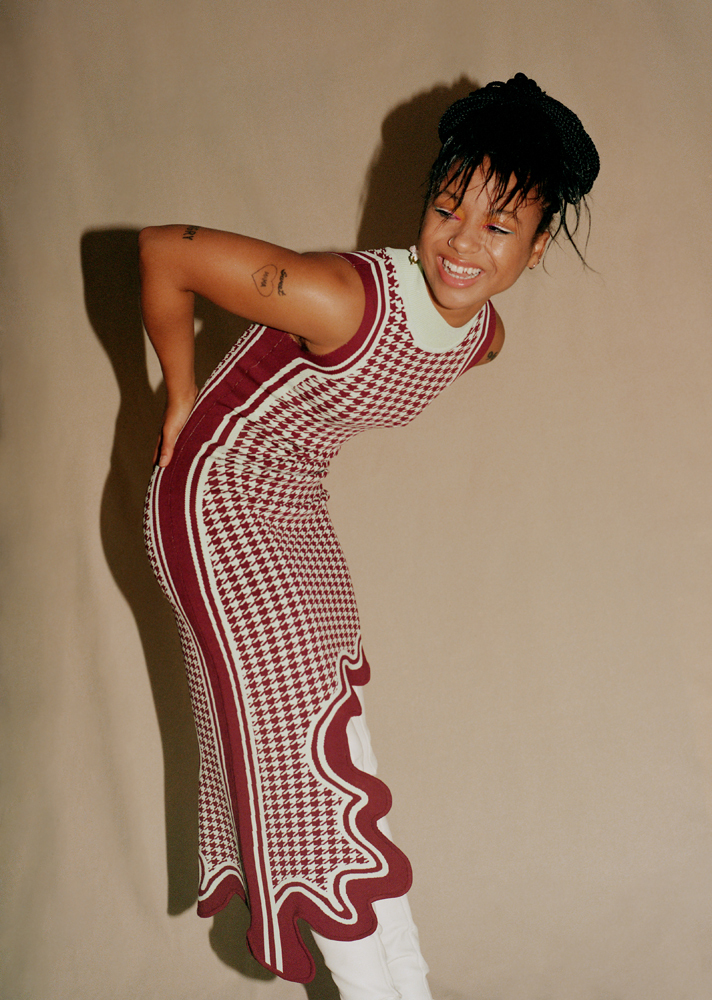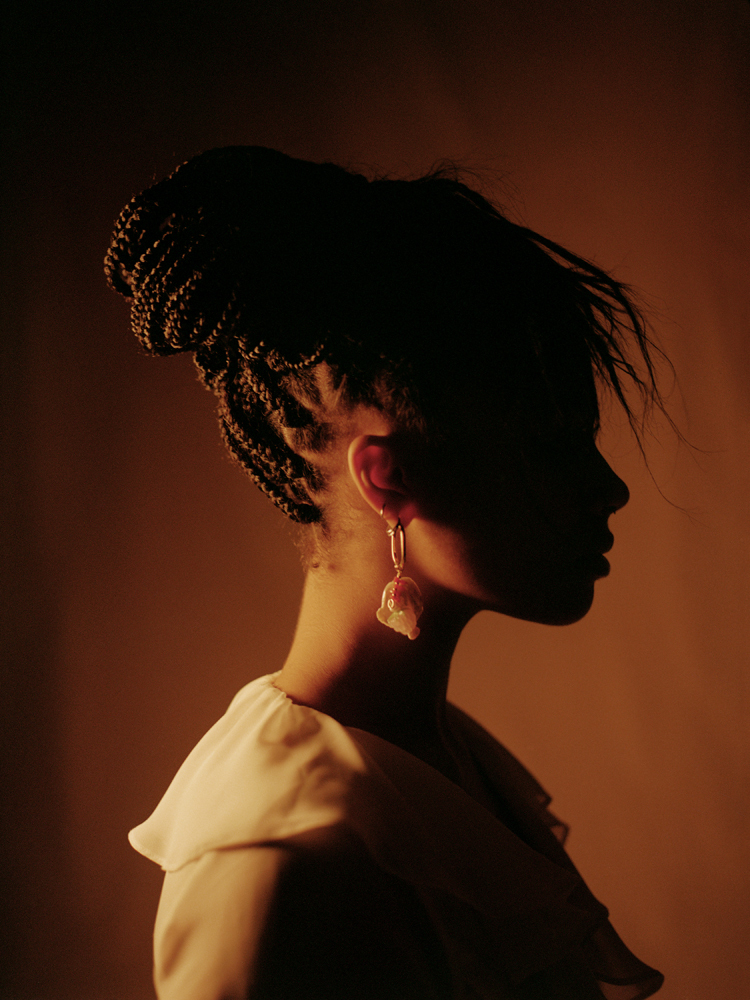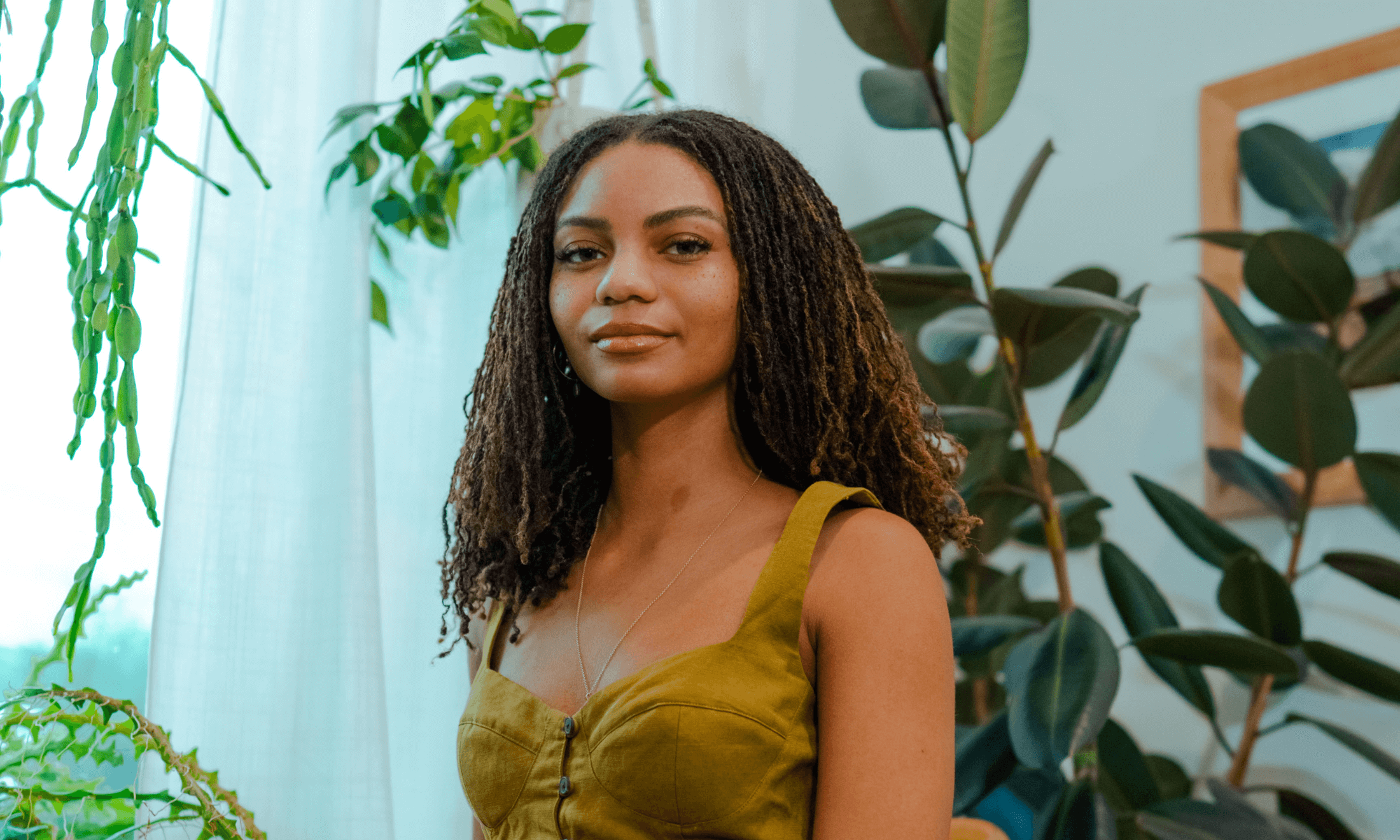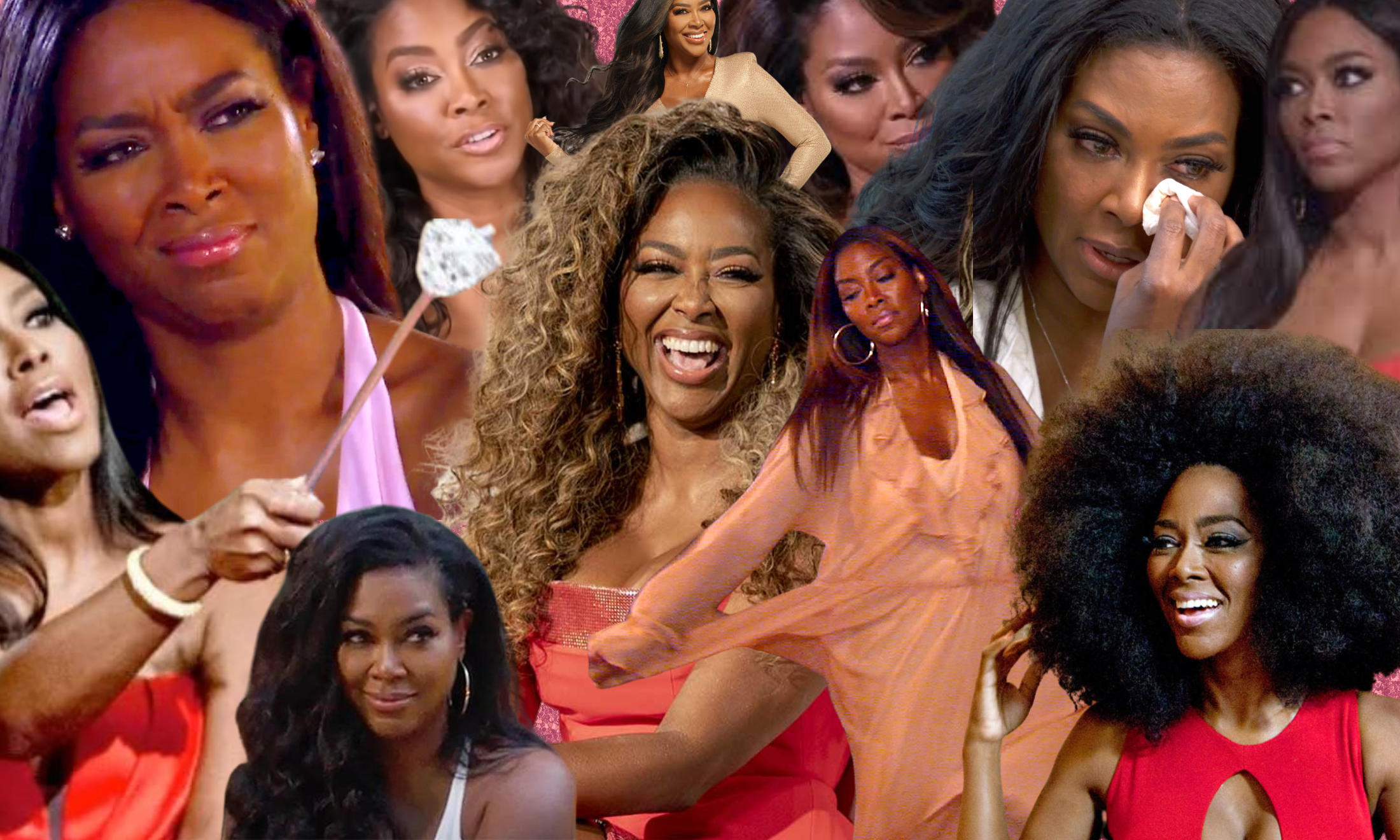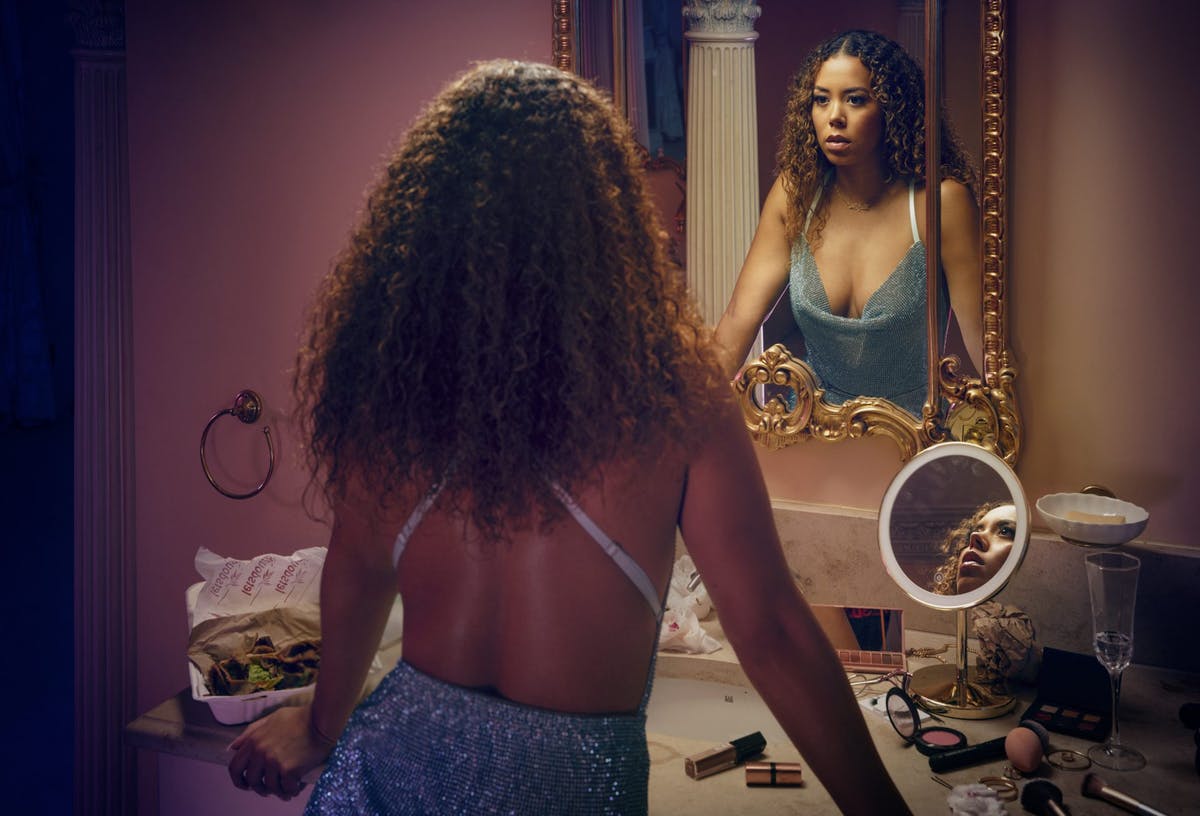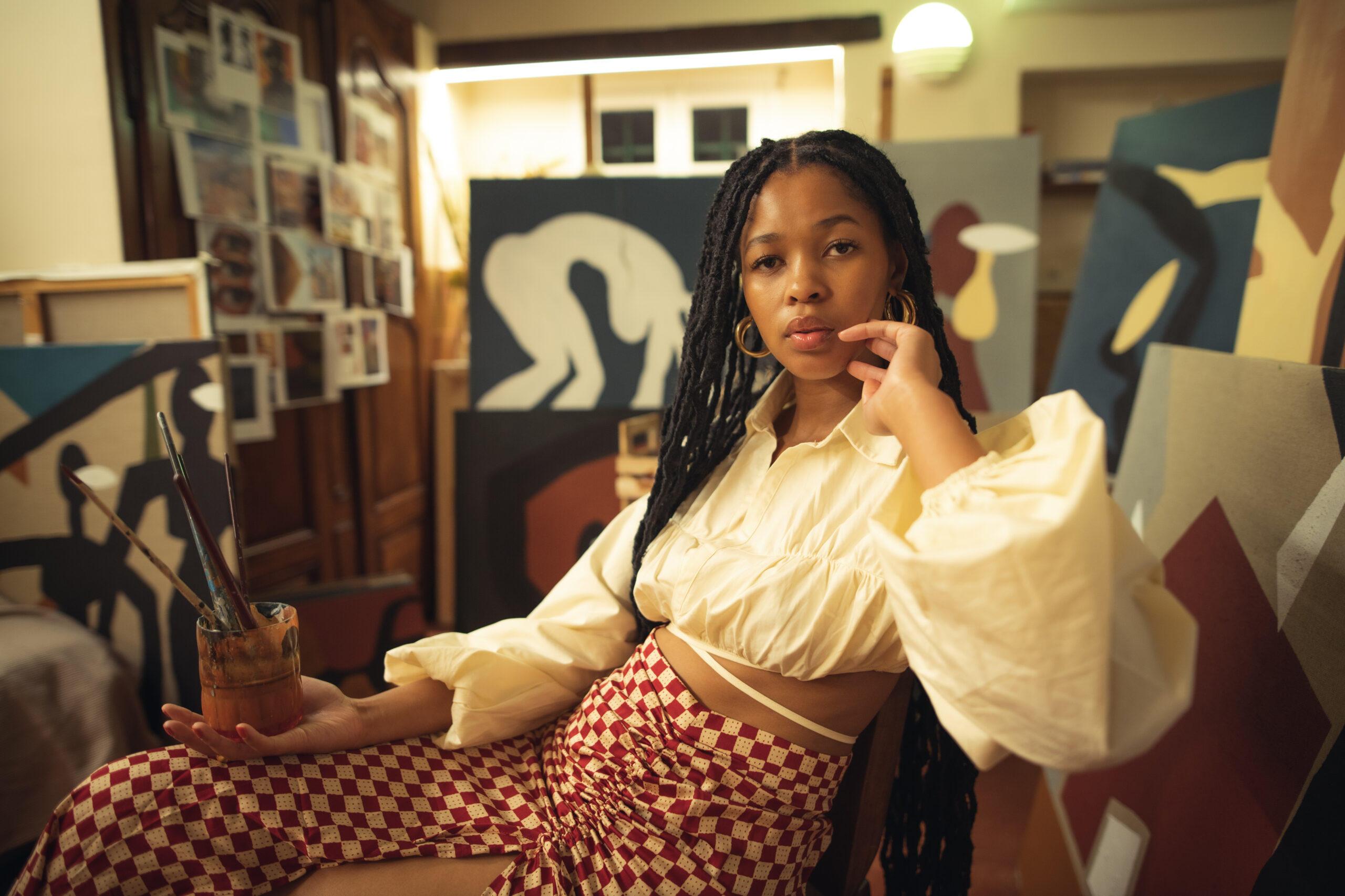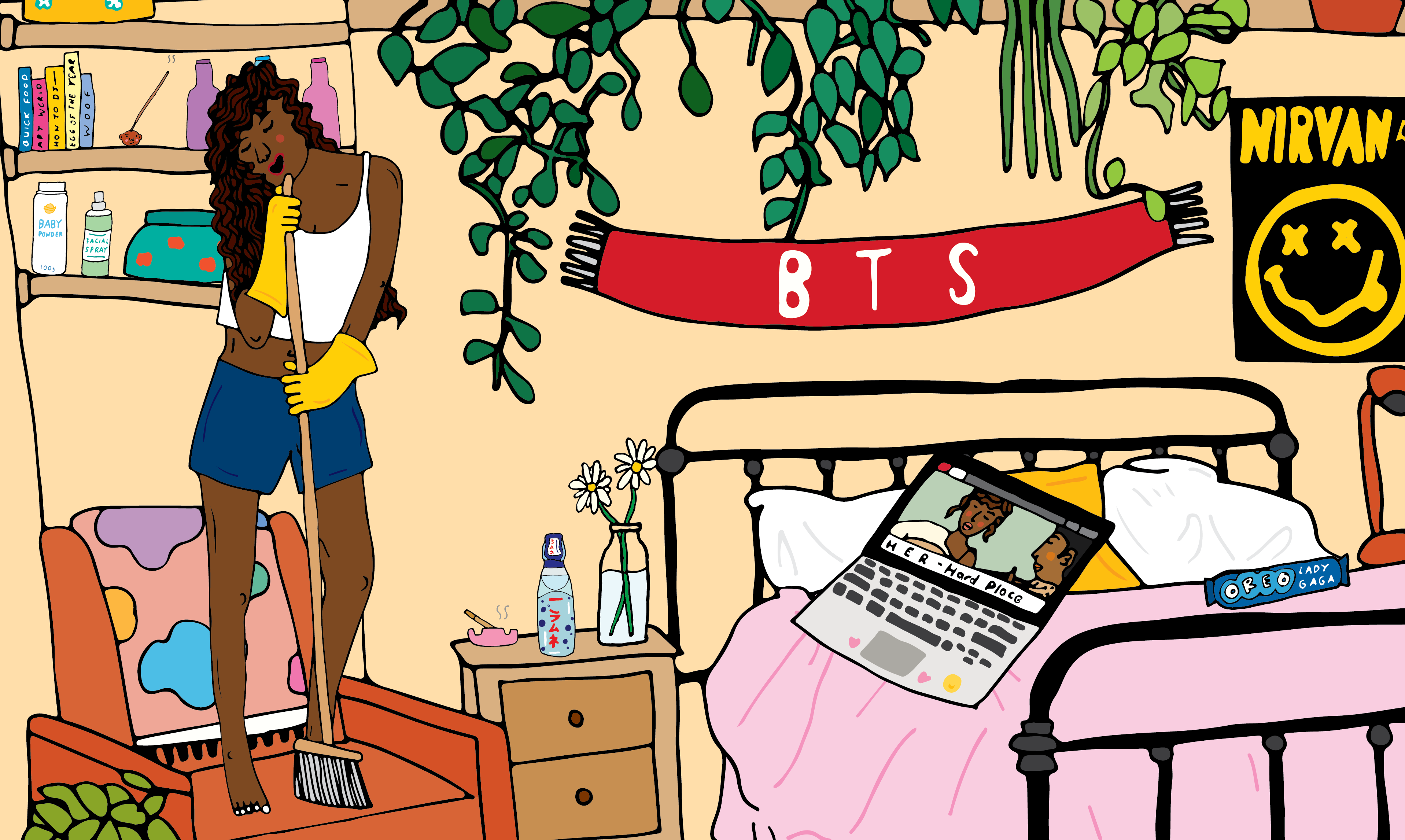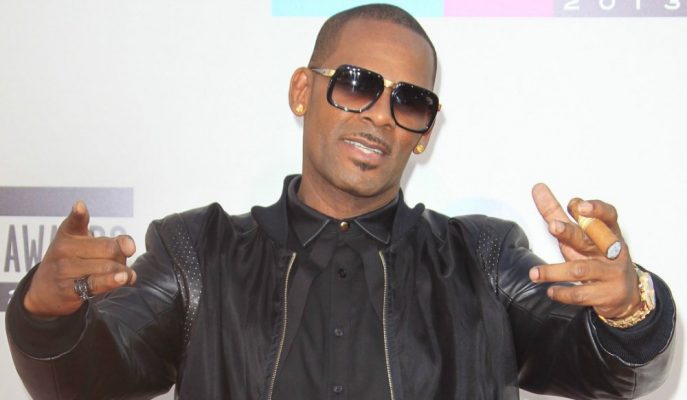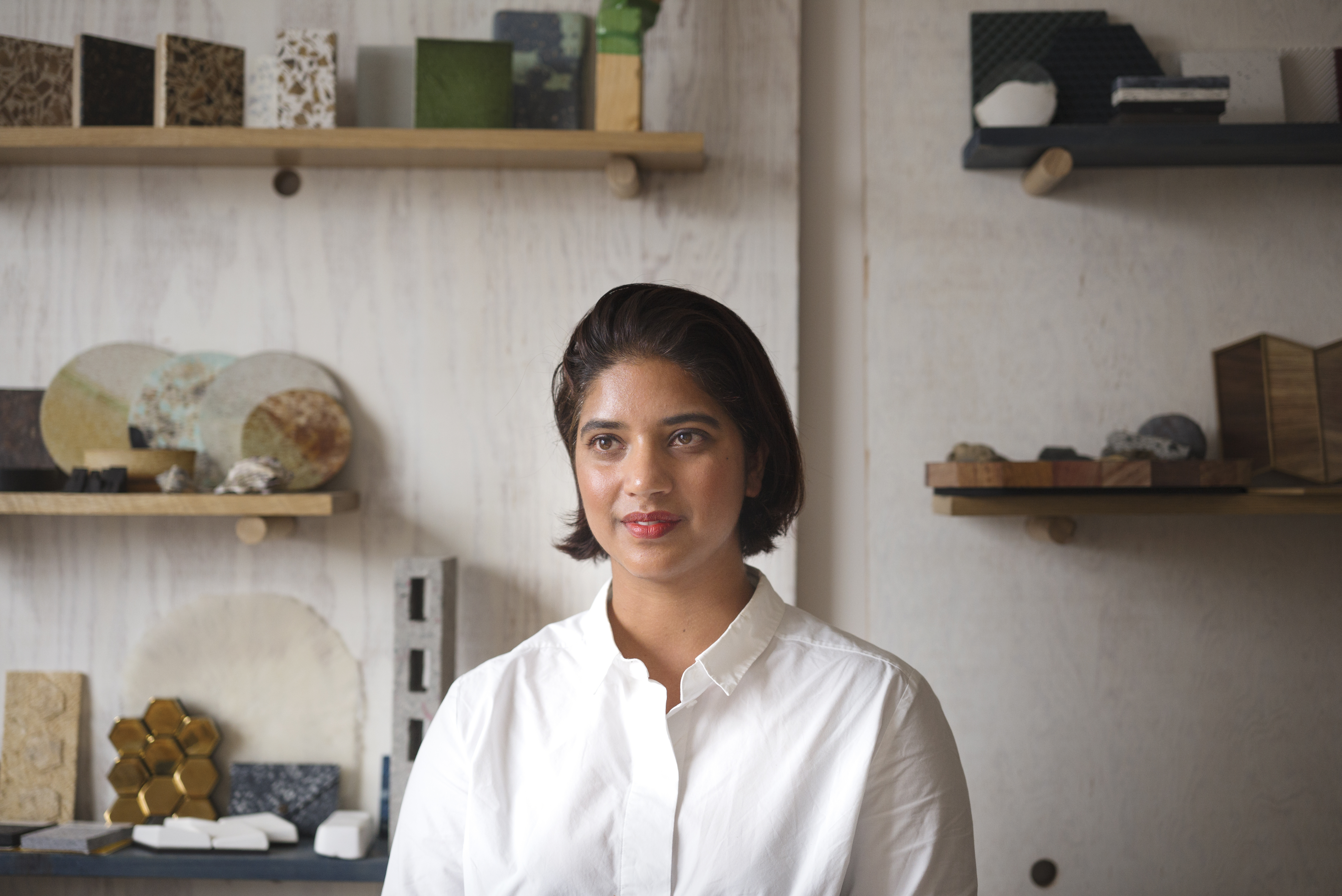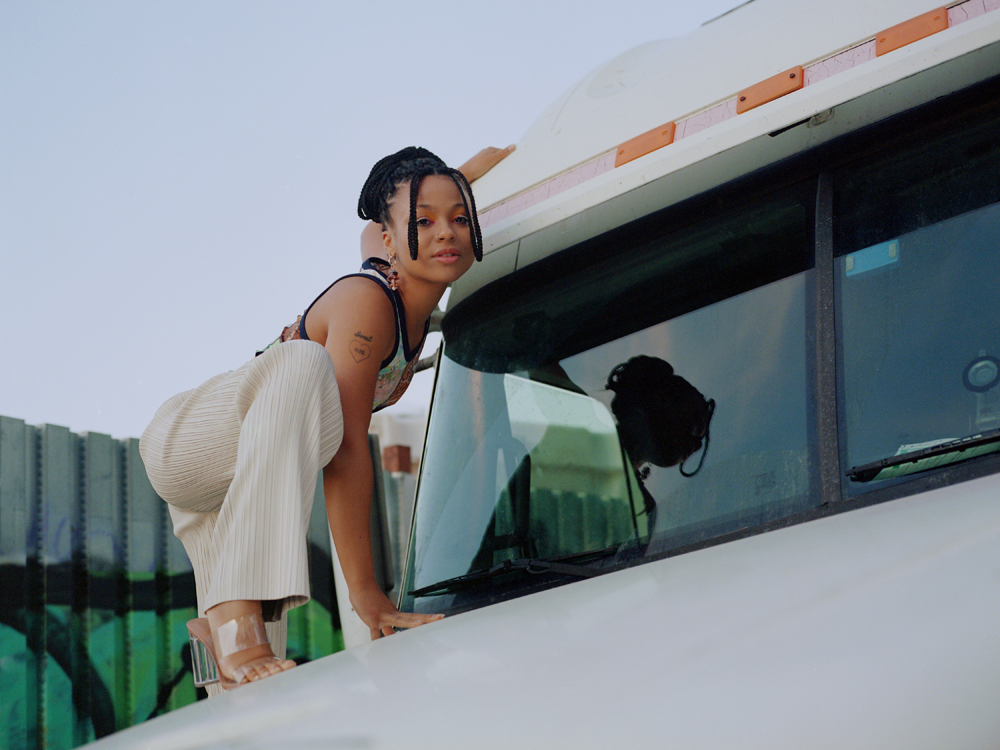
Meghan Marin
Myha’la Herrold is making the industry work for her
The star of the BBC and HBO’s thrilling finance-world drama on capitalism, queer acceptance and falling madly in love.
Charlie Brinkhurst Cuff
17 Aug 2022
“She’s doing it with a lot more confidence, a lot more savvy, a lot more grit,” says Myha’la Herrold. The star of the BBC and HBO banking drama Industry is talking about her character, the indomitable Harper Stern. But really, she could be talking about herself. As the show enters its sophomore season, Myha’la is entering the second phase of her career. She’s determined to make it work, even though she knows that every choice, in these precious, fleeting moments somewhere between obscurity and stardom, is crucial to her future success.
“The show has felt [like] kismet in the sense that all of us as people, as actors, were sort of in a parallel place. New and fresh and excited and scared. And with so much to prove and imposter syndrome,” she says, swirling her straw around a large cup of bubble tea. “It’s an interesting place now in our careers where we’ve done something that did well for us and now it matters what we do next. That sort of sets the tone for your entire career.”
We’ve met at one of her favourite spots in New York City, Debutea, and while I dither over my order, she’s straight in, grabbing a green tea swishing with chewy tapioca pearls. “Suck them up the straw, but not too hard because they’ll go in the back of your throat,” she directs me after I tell her I’ve never had bubble tea before. Dressed boldly in a crocheted red top with tasselled sleeves, makeup-free, hair slicked back, she’s honest, warm and contemplative, sometimes repeating phrases as if to solidify them into existence. Her cadence of speech includes pauses in her sentences as she tries to find the perfect word and hammer it home.
The way she approaches acting is similar in that it is methodical. She practises her scenes over and over again. “I do my best not to plan what I’m going to do, because then for me, it feels less authentic,” she says. “Infinite possibilities exist all at once. And you can do that same line a bazillion different times for the rest of your life. And it could still be true. Still come from an honest place.”
This attitude, she says, comes from her mother, Susan. Her parents were well into the process of getting a divorce when Susan found out she was pregnant and she ended up raising Myha’la alone as an only child. Myha’la got her start in acting after she was encouraged to perform in community theatre as a child by Susan, who was conscious to not have her daughter go down the ‘child star’ path. Instead, with her mother’s support, after Myha’la left high school she ended up at the prestigious Carnegie Mellon University, studying musical theatre – a triple threat who could dance and sing as well as act.
They lived together for many years in what Myha’la describes as an old “English-style cottage” in the Californian city of San Jose. Myha’la didn’t live with her Jamaican father (who’s also based in the US), but she and her mother were so close that when Myha’la first started sleeping in her own room, she would sleepwalk back into her mother’s. “I’d wake up in there like, ‘What the fuck?’”
The pair’s lifestyle sounds sweetly bohemian – Susan ran a salon out of the downstairs of the house. She also played a key role in Myha’la’s queer coming-of-age story, supporting her from the outset, even as a young child. “She is a creative and has always been artsy fartsy. She gave me all the space to do and be whoever I wanted to be,” explains Myha’la. “When I was four – I think four – I said, ‘I’m a lesbian, mom.’ And she said, ‘Oh yeah? How do you know?’ And I said, ‘Because girls are just better than boys. We speak the same language.’ She said, ‘Okay, well, you know, you don’t have to decide yet.’ And I said, ‘Nope! I’m a lesbian.’ Which I thought was very cute. And she was just like, ‘Do your thing.’”
Myha’la misses Susan, who is still based in San Jose, a lot, and at the end of filming the first season of Industry, she flew her out to Paris to ring in the new year on a houseboat. Her mother is also practically the only person she trusts to do her hair. “My plan is to just never have anyone else do it. I’m just going to hire her and bring her everywhere,” she laughs.
“I don’t love capitalism, but I can relate to that person and the struggle they’re going through”
Myha’la Herrold
Despite missing her home comforts, Myha’la says Industry season one was, in American parlance, a “doozy” – successful enough that she notes she didn’t even spot much negativity around it on Twitter. Tracing the lives of a handful of ambitious young graduates entering the deliciously dark world of investment banking, the show delivered far more than your average workplace drama: intense action built around financial jargon, insecure bosses, toe-curling sex scenes and an accurate amount of drugs and booze consumed by 20-something-year-olds just teetering on the edge of addiction.
Despite being written by two former bankers, it also functions as a soft-touch critique of the financial world. Has it made Myha’la more or less critical of the forces of capitalism? “I don’t love capitalism. I can’t imagine being less critical of systems,” she says, with an edge to her voice. “However,” she pauses. “I can empathise, sympathise and recognise, relate to that person. And the struggle that they’re going through… I’m not in a massive place to judge a person whose goal is to make money.” There are a lot of similarities between banking and the entertainment industry, she understands. “The only difference is the amount of money, and that’s not always the difference depending on who you’re with.”
In the show’s second season, Harper, a mixed race Black American transplant in London, is working through the trauma of her first year of work, which saw her face the death of a peer, sexual assault and the general nastiness of a world where the drive for money brings out the worst in people. Harper spends the beginning of season two holed away in a hotel room, working from home, trying to block out the realities of her professional world and her own mental deterioration.
Myha’la understood her mindset immediately. “She and I are so very similar. Because I know Harper so well, she lives inside me,” she says. “I’m two years older as well. And I’ve also been through a pandemic and I, like so many people, deal with anxiety and stress. And I find it very difficult to leave my apartment.”
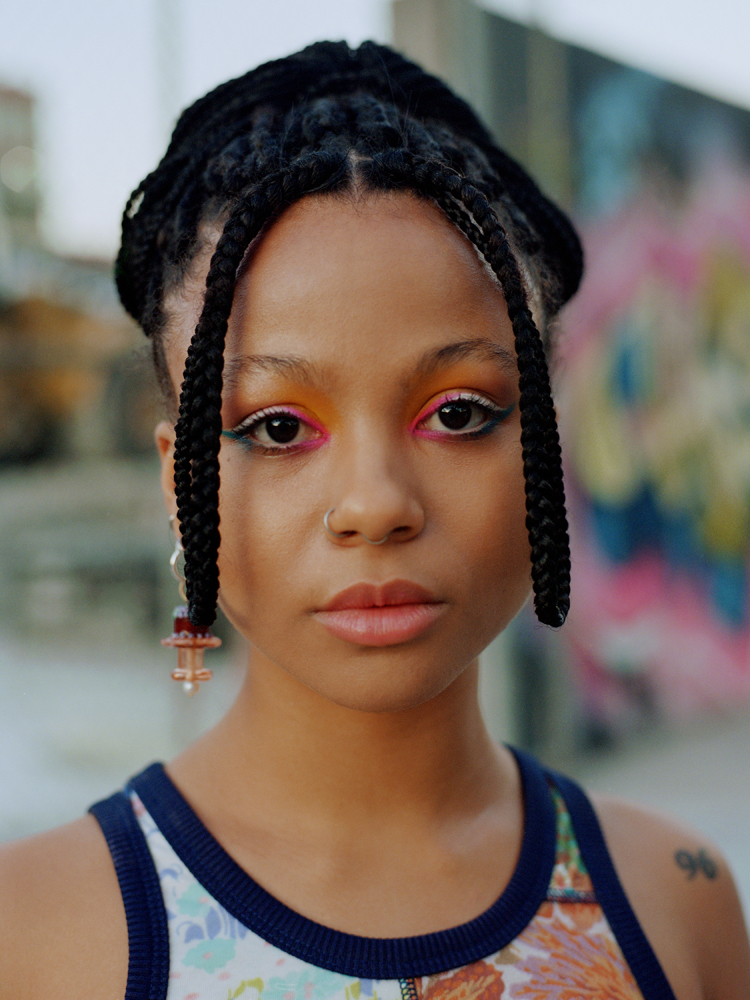
Her current apartment, where she lives with her boyfriend and two cats, is in Brooklyn. If her mother is the first love of her life, then her second is surely Armando Rivera, also an actor and her long-term boyfriend. “The thing that happens to you when you decide that you would like to make a new life in tandem with another person, because the possibilities of what you’ll get to do and watch them do is too good to pass up, is otherworldly,” she says, seriously. “I feel so grateful that I never make a decision without thinking about how it’s going to affect our family.”
Even though she has spent a lot of time at home – “it’s so nice inside my house,” she half-jests – she’s also been busy on other projects in the almost two years since Industry debuted. In the indie slasher film Bodies Bodies Bodies (described by IndieWire as a “pointed black comedy attack on monolithic Gen-Z party flicks”), released in August, she stars alongside Amandla Stenberg and Pete Davidson.
“Both of them are really grounded, super respectful, fun people to work with and hang out with,” she says, adding that she has often been mistaken for Amandla, even on the set of the film itself. “Light skin and baby face and brown eyes, smile… I get it, you know?” But Myha’la, fearless in many ways, is not a fan of horror movies — blood and guts make her feel faint. “I can’t even get through a shot without passing out. That’s not an exaggeration,” she says. On signing on, she was worried that she might end up scared. “I wasn’t, but it was definitely crazy.” The movie is set during a hurricane, and filming involved pushing through scenes in the midst of pouring rain and 40-mile-per-hour winds propelled by huge fans.
“I was a big fish in a small pond. And now I’m a big fish in a big ass pond and with a bunch of biiiiiig ass fish, you know?”
Myha’la Herrold
At the time we meet, at the beginning of summer, Myha’la is working on her second major feature film, playing the character Ruth Washington in Netflix’s Leave the World Behind. Also starring Julia Roberts, Mahershala Ali and Ethan Hawke, among others, it’s her biggest production yet. And unlike her previous on-screen roles, she says, there is a business-like sense to the proceedings. It’s an adjustment.
In person, Myha’la doesn’t present as being quite as ballsy as Harper, but she does give the impression of someone in the midst of planting her roots. Still, she’s keen to avoid a desperate and brutal climb to the top of a famously cut-throat industry that plagues her breakout character. Instead, she’s striving to make it a place she wants to be in for the long term.
“I was a big fish in a small pond. And now I’m a big fish in a big ass pond and with a bunch of biiiiiig ass fish, you know?” she adds.
Industry is now available on BBC One and BBC iPlayer.
This article is from our 2022 print issue, UTOPIA / DYSTOPIA – order your copy here!
Our groundbreaking journalism relies on the crucial support of a community of gal-dem members. We would not be able to continue to hold truth to power in this industry without them, and you can support us from £5 per month – less than a weekly coffee.
Our members get exclusive access to events, discounts from independent brands, newsletters from our editors, quarterly gifts, print magazines, and so much more!

